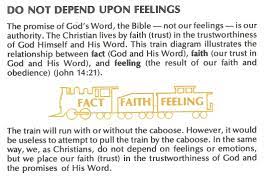
I woke up this morning to about 100 new followers thanks to this very kind tweet by @ElKeenster.
Welcome, new people whose first introduction to me was seeing me listed among some wonderful scholars whom I respect tremendously.
Here is an intro to me:
Welcome, new people whose first introduction to me was seeing me listed among some wonderful scholars whom I respect tremendously.
Here is an intro to me:
I am a middle-aged autistic woman finishing up a very drawn out Masters of Theological Studies degree at Duke Divinity School.
If you know many autistic people, you know that we are SUPER INTO OUR SPECIAL INTERESTS. Here are some of the things I think, read, & tweet about.
If you know many autistic people, you know that we are SUPER INTO OUR SPECIAL INTERESTS. Here are some of the things I think, read, & tweet about.
My core, general, autism special interest (w/ which every other particular niche special interest like some Transformer that was very expensive in the 80's) is the question "Why are people stuck and how do people grow?"
Post of the people who follow me here arrived here after hearing me on one of @DanKoch or @K__Mayfield 's podcast interviews. Here, I talk about how the way we think about knowledge in white American evangelicalism gets us stuck even when we want to grow: soundcloud.com/youhavepermiss…
In this @propheticimagin episode, I briefly appear after as a palate cleanser after a John Piper clip & a Mr. Rogers clip to talk about how distorted shame can shape how we think God sees us. propheticimaginationstation.com/episodes/destr…
In a longer @propheticimagin interview, I talk about how Jesus relates to us in shame, attachment, & compulsive behavior on the second of two episodes set that reflects on issues raised by the Atlanta shooting. propheticimaginationstation.com/episodes/but-i…
You are also going to see a lot of threads on this Twitter feed about white American evangelicalism, particularly system dynamics that shape & reinforce destructive blindspots of people who are often deeply sincere in their faith & trying to follow God as best as they know how.
I talk a lot about the dangers of what I call "Evangelical Sentimental Sincerity Culture," in which sincerely believing true, Biblical doctrine with good intentions is treated as if sincerity is an inner witness of the Holy Spirit endorsing our interpretation of scripture & walk.
Sentimental Sincerity Culture inflates maturity, treats good intentions as good impact, & allows people to manage their anxiety about their own lack of transformation by deferring to their good intentions & doctrine or focusing on the supposedly bad intentions of those d
Combined with an often unstated (but operative) expectation that sincere people w/good doctrine receive the Plain Meaning of scripture more or less as it is, Sentimental Sincerity Culture traps people in fear, shame, & deception b/c it's shameful to not know true things.
If you grew up in a Sentimental Sincerity Culture that drastically oversimplified growth & the acquisition of knowledge & wisdom, not being able to follow through on true things that you sincerely believe can be deeply anxiety inducing & tormenting.
If you are faced w/ the prospect that you & everyone in your circle of trust may have a significant blindspot (such as being confronted w/ the realities of systemic racism for the first time as an adult), it can feel like the goodness of God is at stake b/c your faith is sincere.
If all sincere, Bible believing Christians are supposed to receive the Plain Meaning of God's Word & are therefore uniquely equipped to See Things As They Are, a big chunk of your safety & identity & source of dignity goes away if you find out there was a big blindspot.
Related to these questions, you're also going to see a lot of tweets about abusive church systems & why we have trouble recognizing abuse, handling abuse allegations well, & dealing w/harm we have caused when we meant to help.
I spent a large part of the Summer volunteering with @ACNAtoo to reckon with the fallout of gaps & blindspots in the abuse prevention & response policies in my denomination. They are still doing great work at acnatoo.org w/out me while I work on my Master's Thesis.
Your time is better spent reading the Survivor Story section, but a couple of things that I wrote are on the ACNAtoo.org website:
acnatoo.org/acnatoo-blog/w…
and acnatoo.org/acnatoo-blog/c…
acnatoo.org/acnatoo-blog/w…
and acnatoo.org/acnatoo-blog/c…
If you like my thoughts on white evangelicalism and prayer, you're going to hate my actual scholarship.
It's so boring (if you are excited about my evangelicalism stuff).
The good news is, there isn't a lot of it, b/c I'm a Master's Student.
It's so boring (if you are excited about my evangelicalism stuff).
The good news is, there isn't a lot of it, b/c I'm a Master's Student.
My one published scrap of CV filler is for a Bioethics Journal in which I comment on an article that someone else wrote.
My commentary is some sick, stylish prose, tho.
pubmed.ncbi.nlm.nih.gov/31511301/
My commentary is some sick, stylish prose, tho.
pubmed.ncbi.nlm.nih.gov/31511301/
What is a nice evangelicalism nerd writing sassy commentaries for a Bioethics journal? I did a fellowship in Theology, Medicine, & Culture at Duke Divinity School & we talk about bioethics a lot. tmc.divinity.duke.edu
If you Bioethicsa let down, wait until I tell you about my very autistic Master's Thesis.
Everyone loves an autistic girl whose special interests are related to psychology, trauma, & evangelical history & system dynamics.
That stuff is legit relatable.
Everyone loves an autistic girl whose special interests are related to psychology, trauma, & evangelical history & system dynamics.
That stuff is legit relatable.
If you are ever lost in your life, find an autistic person with a special interest in that territory. We make very detailed maps & can help you get your bearings.
My Master's Thesis does eventually have implications for those topics...
My Master's Thesis does eventually have implications for those topics...
Buuutttt, to get to those applications, you have to wade through lots of discussion about Philo of Alexandria and Paul's letter to the Romans, especially Rom 1.18-32 (everyone's least favorite trauma passage).
What's a nice Bioethics nerd like you hanging out with a dull first century Alexandrian Jewish philosophical commentator on scripture & ambassador to Rome, you ask? Why are you adding to your suffering by comparing his work to Rom 1.18-32?
It's the most white evangelical baggage story ever, except with more autism.
I grew up in the Southern Baptist Convention. It was neither the worst nor the greatest experience. I am extremely grateful for all the good I received & for all the people who were kind to me.
I grew up in the Southern Baptist Convention. It was neither the worst nor the greatest experience. I am extremely grateful for all the good I received & for all the people who were kind to me.
They tried to help me, but they were not good at helping people who were stuck. They were not good at helping people who didn't know how they knew the things they said they knew. They didn't know how to help me when I wasn't sure if I meant the Bible truths hard enough."
They didn't know what to do with people with trauma (this was the 80's & 90's, so really hardly anyone did. I'm still grateful that they cared & tried).
They had lots of messed up teaching about "feelings" vs "faith" and "facts."
They had lots of messed up teaching about "feelings" vs "faith" and "facts."
To be more specific, the books that I was reading in our tradition had lots of terrible teachings on feelings & emotions relative to the truth of scripture. I don't think the actual people around me were that messed up, but nobody does research like an angsty autistic kid, so...
I managed to assimilate the worst theories accrued in the history of evangelicalism when I was trying to get unstuck.
If you want a taste (why?) give a listen to this @bcastlemiller interview on @K__Mayfield 's other podcast, Attached to the Invisible:
krispinmayfield.com/attached/becky…
If you want a taste (why?) give a listen to this @bcastlemiller interview on @K__Mayfield 's other podcast, Attached to the Invisible:
krispinmayfield.com/attached/becky…
Becky & Krispin will make the topic worth your while, though if you grew up in a similar faith tradition, you probably need to hear it anyway.
Anyway, would you believe my autistic self spent about ten years researching the history of emotions?
Anyway, would you believe my autistic self spent about ten years researching the history of emotions?
Did you know there is a subdiscipline on the History of Emotions?
I read a bunch of the books for you. They were suuuuuuper interesting (to me). amazon.com/Passions-Emoti…
I read a bunch of the books for you. They were suuuuuuper interesting (to me). amazon.com/Passions-Emoti…
I wanted to understand the history of how evangelicals thought about feelings/emotions relative to thoughts, facts, mind, faith, the body, rationality, etc.
(This was after spending my twenties in a wonderful charismatic Anglican church that was trauma informed before it was cool & great at teaching people how to pray & connect with Jesus, so I knew my childhood tradition wasn't the whole deal of Christianity).
In my late 20's/early 30's (when I was reading all of the things on history of emotions), I was around a lot of younger Southern Baptists/PCA folk who were even more damaged by harmful "Biblical" teachings on feelings/emotions than I had been when I was younger.
They were very shaped by a well-intentioned (but sometimes harmful) soul care tradition called Biblical Counseling (BC). There's lots of different types of BC & some are more helpful than others, but the combo of BC & toxic Southern culture did bad things to my people.
Southern Baptists today have inherited several streams of different anti-emotion teaching. Ironically, these come from parts of their hybrid tradition that often haaaaaaaaated each other.
Being SBC means never having to admit you have a tradition that shapes your thinking, so...
Being SBC means never having to admit you have a tradition that shapes your thinking, so...
It can be hard to critique the traditions that shape your interpretation of scripture if you don't admit that 1)Your reading of scripture is shaped by traditions that structure thinking in ways you don't realize & may not have consciously assented to; 2) You interpret scripture.
From something called the Keswick/Higher Life Movement in the 19th & 20th centuries, lots of white evangelicalism, especially the Southern Baptists, inherited a model of understanding emotions called "Facts, Faith, and Feelings." 

Facts, Faith, & Feelings was a well intentioned way of not letting big feelings run the show developed in a 19th c. revivalism context in which Methodists were very into feelings as a source of knowledge & everybody was into collecting Baconian "facts." It was Factiness central.
You probably encountered Keswick movement Facts, Faith, Feelings teachings in Bill Bright's Four Spiritual Laws Tract, but other aspects of Keswickish teaching & practice have seeped into white evangelicalism in earnest rededication's at youth camp or the altar call, etc.
You know who really loathed the Keswick Movement? Reformed folk of the 19th & 20th century! You know who also really hated emphasis on emotions/feelings? 20th century Reformed folk, especially Westminstery types.
In the nineteenth century, you start to get readings of Jeremiah 17:9's "The heart is deceitful above all things" in which "heart" is interpreted as "feelings/emotions" and is increasingly seen as opposed to reason/facts/Truth of Scripture.
Fun fact. The term "emotions" technically existed before the 19th century, but it had very little meaning piled onto it.
The opposition of mind (associated with head) to emotion (associated with heart) in a battle for "will" (associated with "white knuckling" it as you "Try Harder to Mean It More") is a very 19th century thing, though it has earlier roots.
(Some of those early roots are in how Philo read Plato & scripture how early Christians read Philo, so we will get back to Philo at some point. I know you are all DYING to get back to Philo).
Anyway, when Southern Baptists started having serious Reformed envy over the past 30 years or so, all their Facts, Faith, Feelings mess clicked with all the Biblical Counseling anti-feeling mess that the Reformed movement cooked up in the 20th century smushed together.
The founder of the Biblical Counseling movement, Jay Adams, majored in Greek in undergrad & was fond of including little smatterings of Greek to anchor his reading of anthropology terms in his BC books.
The Greek really dazzles 'em. That's how you know it's Biblical™️.
The Greek really dazzles 'em. That's how you know it's Biblical™️.
He actually was not the worst on his understanding of the Greek word for heart in scripture. He rightly understood it as "mind," buuuuuttt, he had a VERY modernist understanding of mind, so pretty much no "feelings" allowed except for Biblical ones.
Adams also had an axe to grind with midcentury psychotherapies, especially Rogerian understandings of feelings. (To be fair, kids, going to therapy in the 20th century was even more of a crapshoot than it is today, but w/out the breakthroughs of the 90's therapeutic renaissance).
So even though Adams didn't *technically* oppose heart in scripture to mind b/c he got that Jews treated the heart as the location of the mind, he still had a big mind-feeling dichotomy.
He also seemed to have an association with the "Image of God" and rationality and with dominion, so doing Adam's brand of baptized first-wave Cognitive Behavior Therapy was an exercise of the rational Image of God in taking dominion over sinful thoughts and feelings.
So I was all like "Where did this tradition of 'Image of God as mind' come from?" And also "What did Paul mean by 'heart' when Paul is using it in passages cited by people like Adams?"
So that was in the back of my mind when I went to Div School in 2017. I wanted to find the people who knew about those things so they could tell me how Paul conceptualized the relationship between heart, feelings, mind, thoughts, faith, etc.
But y'all, would you believe that our most helpful contemporary source for understanding how Paul uses these terms in SERIOUSLY UNDERSTUDIED in New Testament?
No one wants to read Philo of Alexandria.
It's because he's kinda a lot.
But you know who ELSE is kinda a lot?
No one wants to read Philo of Alexandria.
It's because he's kinda a lot.
But you know who ELSE is kinda a lot?
My autistic self is here for all of it.
Give me all the Philo & Plato & the secondary literature on Paul & Romans & Philo & The Exposition & Plato & the Timaeus.
Tell me all about how Stoics thought the mind was in the heart & the Platonists thought it was in the head.
Give me all the Philo & Plato & the secondary literature on Paul & Romans & Philo & The Exposition & Plato & the Timaeus.
Tell me all about how Stoics thought the mind was in the heart & the Platonists thought it was in the head.
Tell me how the mind was the ruling part of the rational soul and how some people (like Philo, some Stoics, & probably some Middle Platonists) thought that there was also a lower, irrational soul that lived in the blood.
I want to know all of those things and I will make the time for it.
So that's how I started looking into how Paul uses "heart" language and the "Image of God."
So that's how I started looking into how Paul uses "heart" language and the "Image of God."
Y'all wanna know why we started reading the "likeness image of God" as mind?
It's from our boy, Philo, who was drawing from an older tradition of Alexandrian Jews reading Genesis 1-3 mixed up with Plato's own creation narrative of the Timaeus.
It's from our boy, Philo, who was drawing from an older tradition of Alexandrian Jews reading Genesis 1-3 mixed up with Plato's own creation narrative of the Timaeus.
What does a nerdy Alexandrian Jew have to do with Paul's letter to the Romans?
Philo wrote a "Everything You Want to Know About Torah But Didn't Know How to Ask" type of commentary ...to non-Jews...when he was in Rome as a diplomat...trying to make Jewish teaching respectable.
Philo wrote a "Everything You Want to Know About Torah But Didn't Know How to Ask" type of commentary ...to non-Jews...when he was in Rome as a diplomat...trying to make Jewish teaching respectable.
Philo's commentary on Torah for non-Jews is usually called the Exposition series. You know what it sounds A LOT like?
Romans 1.18-32. Also, Romans 10. Also, other parts of Romans, kind of in the same order of the Exposition a lot of the time.
Romans 1.18-32. Also, Romans 10. Also, other parts of Romans, kind of in the same order of the Exposition a lot of the time.
You want to know why you've never heard this fun fact before? In the late 19th century, some guy writing a chronology on Philo's many writings said that he had a "general impression" that the Exposition wasn't written for non-Jews (as many people at the time thought).
Despite the biggest name in Philo scholarship trying to correct this wrong turn forty years later, Philo scholarship didn't start looking at a Roman, non-Jewish audience for the Exposition again until a little article in 2011 & a gamechanger book in 2018. yalebooks.yale.edu/book/978030017…
The Exposition is so long, it wouldn't occur to a sane person to compare all of its different books to Romans before 2018 to see if there are structural parallels because there wasn't an association of Philo's Exposition with Rome.
Even now, it's not a realistic project for a young scholar who needs to publish early and publish often to establish a career.
You know who can't publish early & often & wld be crushed by an academic career? My middle aged autistic self.
I've got time for this.
You know who can't publish early & often & wld be crushed by an academic career? My middle aged autistic self.
I've got time for this.
This is a nerdy project with all the grand puzzle elements a data-hoarding, pattern-recognizing brain could want combined with so many answers to the question my soul has been asking with longing since I was 16. I'm here for it.
Most of us anxious folks from a white evangelical background can't "hear" Paul on his own terms because we hear our anxious, controlling, & condemning authority figures who tried to love us & help us by talking to us the same way they talked to themselves: with shame.
The magical thing about my charismatic Anglican formation was that I could still take scripture as authoritative without God's goodness or scripture being threatened if my tradition's interpretation turned out to be 1. an interpretation 2. a bad interpretation.
Despite having some very big St. Paul trauma, I had enough support so that I could eventually distinguish between the voices I heard that interpreted Paul for me as a child & teen & Paul as a very odd first century Jew who is not the people who hurt me with his words.
Fun Philo puzzle- at just about every major contact point that Romans seems to have with the Exposition, Romans seems to disagree w/Philo or modify him significantly. The big exception is Romans 1.18-32.
Why is that, you ask?
Why is that, you ask?
If you were a moderately literate person in the first century Roman Empire, you would have learned a basic rhetorical technique called a "speech-in-character." It's like when a comedian does a "bit" in which they tell a story in character.
About 12 years ago, some scholars on Romans who were looking at how Paul creates a dialogue with a rhetorical opponent in other parts of the letter suggested that Romans 1.18-32 is a speech-in-character that sets up the views of Paul's opponents.
If you were raised Southern Baptistish like me, that sounds like liberal crazy talk in which people who are Led By Their Feelings Instead of the Truth of God's Word try to get out of parts of scripture they don't like without admitting that they are doing it.
That's what it sounded like to me. The speech-in-character theory is controversial for Romans 1. If you're from a tradition in which your entire identity & God's goodness & faithfulness is rooted in your tradition being the people who Finally Got Romans Right, it's unthinkable.
There's a lot of world class scholars who haven't chained the goodness of God to their ability to receive the Plain Meaning of Scripture when they are sufficiently earnest who disagree with the speech-in-character theory for Rom 1.18-32.
It's a complicated argument if you are just basing it off the ancient rhetorical theory. @AndrewRillera just wrote a boss dissertation on the subject that makes huge progress. It's called "Paul’s Philonic Opponent: Unveiling the One Who Calls Himself a Jew in Romans 2:17."
Andrew is not as into the structure of Philo's Exposition relative to the structure of Romans as I am, but he's way more into the nitty gritty of Romans and to ancient rhetorical theory of speech-in-character than I am, and y'all are so lucky to have him. onscript.study/podcast/andrew…
The neat thing about my Philo research (though Andrew has a chapter in his diss that gets the job done already for Rom 1.18-32) is that it gives a parallel body of evidence that does not depend on ancient rhetorical theory to support the speech-in-character thesis for Rom 1.18-32
If Romans largely seems to be engaging the Exposition (or a remarkably similar tradition to one by this Uber-wealthy, well-connected dude who wrote to a bunch of Roman non-Jews 10-15 yrs before Paul wrote Romans) & disagrees everywhere but Romans 1.18-32...
Speech-in-character in Rom 1.18-32 is an awfully good explanation for why that's the case (this is a big oversimplifcation- Paul's engagement with Philonic style material is more complex than 100% rejection or 100% acceptance).
A Philonic style reading of Torah would create big problems for Paul.
1. Philo believed that the Law of Moses was the inspired form of written law most in harmony with the divinely ordered, unchanging Law of Nature.
1. Philo believed that the Law of Moses was the inspired form of written law most in harmony with the divinely ordered, unchanging Law of Nature.
2. Philo's reading of Torah to Roman non-Jews would have been very appealing to a mildly sympathetic audience. It frames Moses as the ideal philosopher & lawgiver & the Law of Moses as the fulfillment of the highest aspirations of first century therapeutic & scientific traditions
A lot of us read Rom 1.18-32 through 2000 yrs of Christian tradition & find it very strange. It was the most Roman bougie reading of Torah possible in the first century. It was Brene Brown reading you Bible Stories.
A basic literate Roman was into therapy wld have heard Rom 1.18-32 or Philo's Exposition & said "Oh my God, my therapist said that LAST WEEK & I heard the same thing on a Neil deGrasse Tyson Ted Talk!"
Reader, Philo even had something that was kinda similar to a first century Enneagram going on. He, like everyone else in Rome & Alexandria at the time, was really into Neopythagorean Arithmology.
Numbers reflected the basic rational order of the cosmos.
Numbers reflected the basic rational order of the cosmos.
They probably talked about that stuff like white people talk about the enneagram today (the numbers didn't necessarily correspond to personality types, but they were EVERYWHERE).
If you read Philo without that context, he sounds incredibly obscure & esoteric.
If you read Philo without that context, he sounds incredibly obscure & esoteric.
Going back to Philo's presentation of the Law of Moses as the best reflection of the unchanging Law of Nature-
Did Paul think non-Jewish followers of Jesus had to follow the Law of Moses?
Did Paul think non-Jewish followers of Jesus had to follow the Law of Moses?
No.
If the Law of Moses reflects the unchanging Law of Nature, is Paul's view on the Law of Moses for gentiles a problem?
Yes. It sounds irrational and crazy.
It also implies that God changed, which is a big no-no in first century cosmology.
If the Law of Moses reflects the unchanging Law of Nature, is Paul's view on the Law of Moses for gentiles a problem?
Yes. It sounds irrational and crazy.
It also implies that God changed, which is a big no-no in first century cosmology.
One of the most excitingunexplored questions of Romans is how Paul's presentation of the Law of Moses & the Law of the Spirit in the letter addresses objections that a Philonic reading of Torah w/ Law of Moses=Law of Nature create for the Gospel of Jesus.
That question becomes "askable" when you don't have to pretend that Rom 1.18-32 doesn't have a Big Natural Law Energy because it doesn't fit your tradition's reading of Paul to think of him as into Greco-Roman natural law.
No mildly literate first century reader of Greek, non-Jewish or otherwise, could have have read or heard Rom 1.18-32 without hearing basic principles of divine providence, divine active causation, and natural law. It was basic to Stoicism & Middle Platonism. It was basic period.
That's me in a nutshell. Other than Philo, Romans, history of evangelical soul care & anthropology, etc,
I have a cat that I found wandering in my yard during the pandemic that I occasionally dress up in funny hats. He's mostly okay with it if he gets stinky treats.


I have a cat that I found wandering in my yard during the pandemic that I occasionally dress up in funny hats. He's mostly okay with it if he gets stinky treats.



I also collect books (on Philo, history of emotions, etc) and have a splendid collection of tea cups. Many, though not all autistic people are "collectors" of stuff as well as FACTS YOU NEED TO KNOW ABOUT THIS THING I AM REALLY INTO.
instagram.com/p/BQ0gplCDoVm/
instagram.com/p/BQ0gplCDoVm/
I live with my husband of fourteen years, @literalgriffin , who is the kindest, most emotionally healthy, spiritually growing man in the world & is probably the best non-autistic partner an autistic person could ever ask for.
He also died twice but isn't currently dead. Weird.
He also died twice but isn't currently dead. Weird.
@literalgriffin & I live in intentional community with three roommates: two from Ghana who are students & one from Egypt who desperately wants our cat to love him but can't figure out how to win Pumpkin's trust.
It's a nice life.
It's a nice life.
If you are a person who prays who enjoyed this thread, your job is to now pray for me that I will finish my Master's Thesis. It's very long and complicated and I'm in burnout, even though I loooooove it.
Autism can come with magic superpowers, but page limits & due dates are my personal kryptonite. I love my work and am totally here for it for as long as it takes for me to Finally Figure Out How Romans Works, but conventional schooling is designed made for people like me.
(Which is one of the reasons why y'all don't have scholarship that has structurally compared all of Romans to all of Philo's Exposition yet, so good chance to reflect on what other things disabled people have to share that we aren't getting to celebrate yet b/c of ableism).
Also, if you listen to my podcast and think "she doesn't sound autistic," bless you, honey, I know. I spent most of my energy for 4 decades trying not to sound, look, or act autistic. It made me tired & I'm not consistently successful at "camouflaging" or "masking" my traits.
Also, you will notice in my interviews that I seem to have tremendous empathy.
It's because I have tremendous empathy.
It's a myth that autistic people don't have empathy. We just sometimes attune differently so you don't feel connected to us. I LEARNED how to connect to you.
It's because I have tremendous empathy.
It's a myth that autistic people don't have empathy. We just sometimes attune differently so you don't feel connected to us. I LEARNED how to connect to you.
I also watched a lot of Murder, She Wrote to get my kindly middle aged lady vibe down for your listening benefit. This skill also bought to you by my pastor's wife and deaconess in my twenties. Bless.
*not designed for people like me, rather.
Also not designed for people like me: Twitter's lack of editableness. Also, homophones.
Also not designed for people like me: Twitter's lack of editableness. Also, homophones.
Oopsie- here is the afore mentioned sweet tweet by Ben that kick's off the "Welcome, people who were expecting Beth Allison Barr or Kristin Du Mez 2.0 but are seeing pictures of my cat wearing hats instead" thread. 
https://twitter.com/ElKeenster/status/1464794395048177669?s=20

Thank you to everyone who prayed for me while I was writing this thesis on Romans 1.18-32 & Philo's Exposition!
If anyone wants to read in order to better understand what is going on in this very complicated passage of scripture, you can download here:
academia.edu/62860033/Griff…
If anyone wants to read in order to better understand what is going on in this very complicated passage of scripture, you can download here:
academia.edu/62860033/Griff…
• • •
Missing some Tweet in this thread? You can try to
force a refresh



